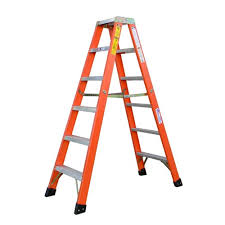记忆方法
将“ladder”与“lad”联想,想象一个孩子(lad)手握一个“ladder”(梯子)向上爬。这样的视觉画面可以帮助你记住单词“ladder”。
以上内容由AI生成, 仅供参考和借鉴
中文词源
ladder 梯子
来自PIE*klei,倾斜,前倾,词源同lean,incline.后用来指梯子。
英语词源
- ladder
-
ladder: [OE] Etymologically, a ladder is something that is ‘leant’ up against a wall. Like Greek klīmax ‘ladder’ (source of English climax), it goes back ultimately to the Indo- European base *khli-, source of English lean. Its West Germanic relatives are German leiter and Dutch leer.
=> climax, lean - ladder (n.)
- Old English hlæder "ladder, steps," from Proto-Germanic *khlaidri (cognates: Old Frisian hledere, Middle Dutch ledere, Old High German leitara, German Leiter), from PIE root *klei- "to lean" (cognates: Greek klimax "ladder;" see lean (v.)). In late Old English, rungs were læddrestæfæ and the side pieces were ledder steles. The belief that walking under one brings bad luck is attested from 1787, but its origin likely is more pragmatic than symbolic. Ladder-back (adj.) as a type of chair is from 1898.
权威例句
- 1. Her whole body began to buckle, unbalancing the ladder.
- 她整个身体开始弯曲,搞得梯子倾侧起来。
- 2. Two men were on the bridge-deck, steadying a ladder.
- 两名男子在船桥甲板上扶着一架梯子不让它摇晃。
- 3. We climbed rather perilously down a rope-ladder to the boat below.
- 我们冒着相当大的危险沿着绳梯爬到了下面的船上。
- 4. Uncle George quickly descended the ladder and nimbly stepped aboard.
- 乔治叔叔迅速爬下梯子,敏捷地上了船。
- 5. He was halfway up the ladder.
- 他正爬到梯子一半。

